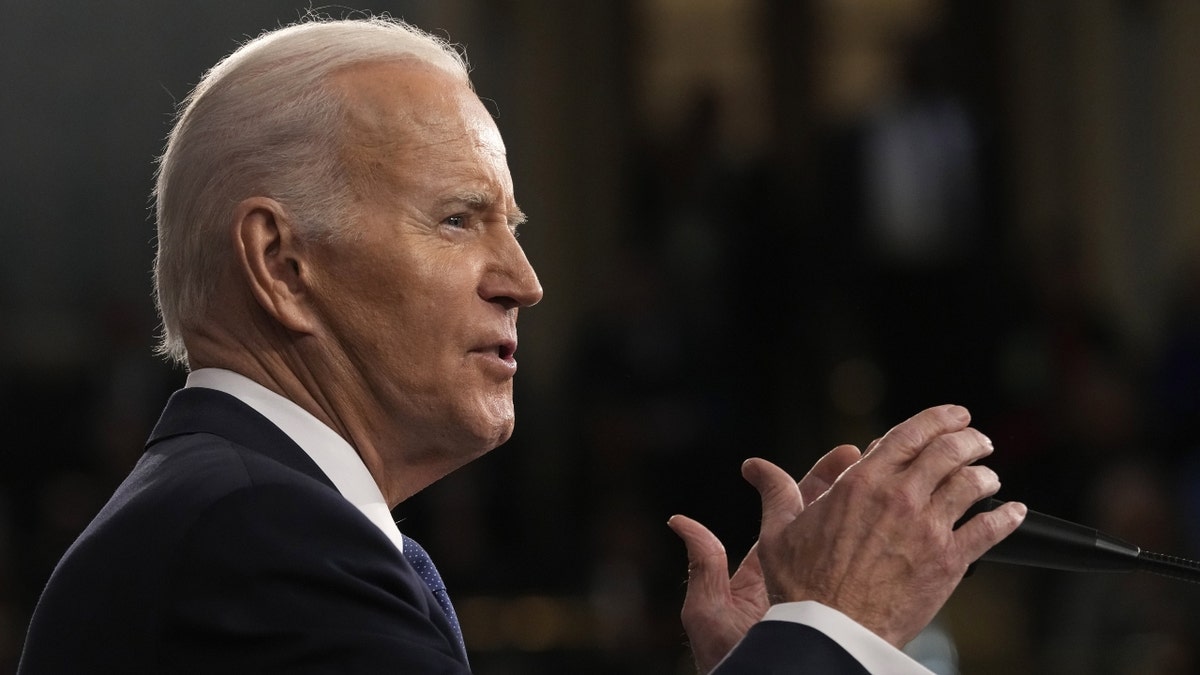President Biden: It would be a crime to not extend the debt limit
Fox News White House correspondent Jacqui Heinrich asks President Biden to explain his stance on debt ceiling negotiations.
House Republicans' debt ceiling increase bill, the Limit, Save, and Grow Act, gives President Joe Biden the means to reverse our economic woes and create $2.7 trillion in wealth in the marketplace. All the president has to do is put partisanship aside and say OK to very good legislation.
If Biden doesn’t sign the bill or refuses to negotiate, the economy will take a hit. But as former Senate Banking Committee ranking member Pat Toomey pointed out last week, there is no chance any U.S. bond will not be paid in full. If there is a technical default, experts expect bond prices to actually rise due to a "flight to quality" and move away from Treasuries to highly rated private sector corporate and municipal bonds. We predict this could result in a 1-2% increase in bond values.
If Biden doesn’t sign the bill or negotiate, there will be some chaos and uncertainty in the equity markets. In the end, we predict that stocks would be down 2%. Given the current $45 trillion in capitalization, the loss would be about $900 billion.
Biden’s refusal to negotiate on the debt limit is an unpopular position, according to a recent poll from WPAintelligence, which revealed only 29% of registered voters thought Biden should not negotiate.
TOP SENATE REPUBLICANS COALESCE AROUND MCCARTHY AFTER HE UNVEILS DEBT LIMIT PROPOSALS
On the other hand, if Biden, by some miracle, signed the Limit, Save, and Grow Act, and said "yes" to economic growth, then stocks would explode to the upside. With all the pro-competitive provisions, the $4.8 trillion in deficit reduction, the additional work requirements for welfare, and removal of self-imposed limits on American energy production, and the REINS Act, we conservatively estimate the market would increase by at least 4%. That’s $1.8 trillion of wealth creation.

President Biden speaks during his State of the Union address at the U.S. on Feb. 7, 2023. (Jacquelyn Martin/AP/Bloomberg via Getty Images)
The swing between Biden nixing the debt ceiling increase and allowing a default, and his signing the bill with its pro-growth provision is $2.7 trillion (or roughly 6%) increase in U.S. market cap.
The benefits for most Americans are enormous. About $800 billion more in the 401(k)’s, pension funds, and other retirement accounts of Americans. The reduction of inflationary pressure from excessive deficit spending will also make the Federal Reserve’s job easier to create a pathway for eventually lowering interest rates, further spurring investment, job growth, and prosperity.
CLICK HERE TO GET THE OPINION NEWSLETTER
Pro-growth policies mean higher wages for everyone, more productivity, and more new job formation. Additionally, the deficit reduction will help tame historic levels of inflation that may creep up in the coming months due to energy demand increases in the early summer.
And with the government "owning" around half of the profits through taxes on corporations, capital gains and estates, the federal government would also see enormous benefits from this potential economic boom to the tune of over $1 trillion. If Biden wants to do everything he can to help the private sector succeed while increasing government revenue, the Limit, Save, and Grow Act would do exactly that.
CLICK HERE TO GET THE FOX NEWS APP
Hopefully this massive upside in the markets gives the Republicans the backbone to stand firm in negotiations. Even better, Biden and his allies in the Senate should recognize a good thing when the see it and grab the credit for turning the economy around.
Considering U.S. growth significantly slowed in the first quarter of 2023 and the economy may be on the cusp of a recession, Biden should consider signing the Limit, Save, and Grow act to turn the economy around. Voters tend not to like recessions when they go to the ballot box.
CLICK HERE TO READ MORE FROM DAVID McINTOSH
David McIntosh is president of the Club for Growth PAC. He served as a Republican U.S. representative from Indiana, 1995-2001.



